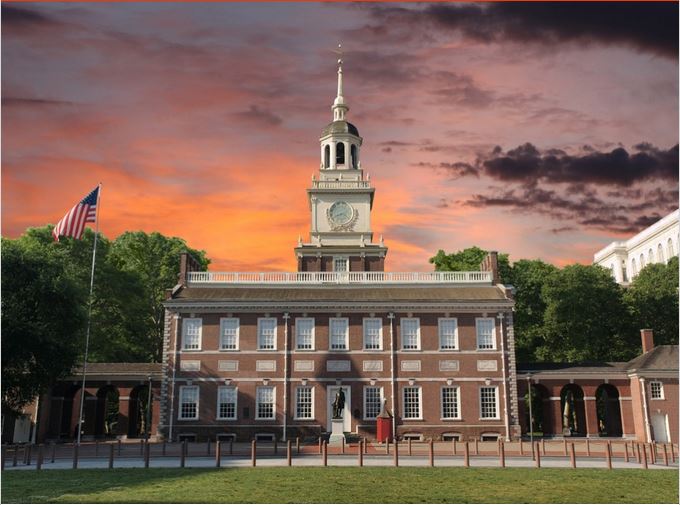From Townhall Magazine’s July feature, “How to Celebrate the Fourth of July,” by Dr. Larry Arnn, president of Hillsdale College:
[Two hundred thirty-nine years ago] this Fourth of July, 56 men signed the document that created the American republic. They represented a people of about 3 million grouped in a series of 13 colonies along the eastern seaboard of the United States. They were all wanted men, sought by the commander of the British forces in North America for sedition and treason. He had behind him the resources of the greatest military power on earth. They had behind them the bare beginnings of a government, hardly anything of an army, but something mighty in the way of an idea.
This nation had therefore a desperate beginning. Who but the boldest could believe that the signers of the Declaration of Independence were laying the foundation of the greatest constitutional republic in history? Now that republic has spread across the continent, and its influence reaches around the world. Its population has increased a hundredfold. Its Constitution has provided government to a free people constantly growing in size and territory, each new state joining the union as an equal, its citizens never subjects, its people ever free. There is no story close to it in the history of man.
Statesmen and thinkers have attributed the strength and goodness of the nation to the principles in the Declaration. Many others have denied this. Statesmen and thinkers have proclaimed the Constitution a just and beautiful implementation of the principles of the Declaration. Many others have denied this. These denials are more common in times of crisis in our country. They are very common now.
…
Because we have come so far from the founding institutions, it is worthwhile to remind ourselves what they are. This anniversary of the Declaration of Independence provides a splendid occasion, because both the principles of the nation and its institutions are summarized beautifully in its 1,300 words. Let us then read it for a moment.
Notice first of all how remarkable it is that the document should begin universally. The authors were obviously mindful of the fact they were wanted men. They conclude the Declaration with a solemn promise, made to each other in the mood of soldiers facing battle: “In support of this Declaration we mutually pledge to each other our lives, our fortunes, and our sacred honor” (emphasis added). The particularity of this commitment, each man speaking for himself in promise to the others in the room, is what one might expect of legislation passed on the eve of a war, legislation that is itself a written act of treason.
Read more: townhall.com
This article first posted at Townhall.com three years ago today.
Image credit: TheFederalist.com.

